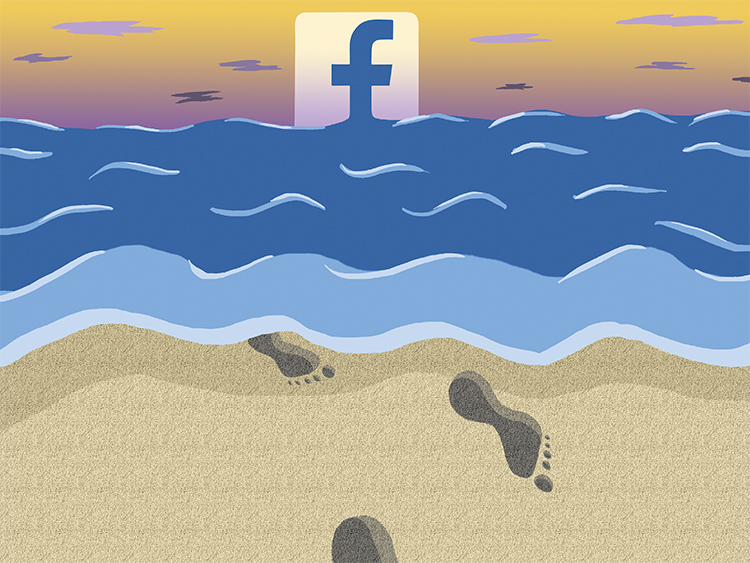An escape from Facebook

Millennials were among the first group of people to adopt Facebook as a part of our daily lives

Millennials were among the first group of people to adopt Facebook as a part of our daily lives. For the past 10 years, the site has grown into what it is today. Almost every single person I know has an account. In fact, I know only three people in my life that aren’t on Facebook.
This past week I joined these three — at least temporarily — as I deactivated my own account. As an extremely extroverted person being without Facebook for a period of time, I want to share the way my life has changed.
The first day after deleting my Facebook account, I received about 12 text messages from friends and family asking if I was okay. While I appreciated people’s concern, I found this link between deleting Facebook and being mentally unhealthy to be very interesting.
In reality I was just fine. I wasn’t being cyber-bullied and nothing significant happened in my life to motivate the decision. I just felt like taking a break from the online community.
For years, we share with Facebook our personal thoughts and feelings, relationship status and even our meals. We check in at various locations, discuss our political views, favourite quotes and other personal information. Facebook is the diary of the 21st century.
We cultivate quite an intimate relationship with Facebook. The word intimate is what I’ve found to be the key here. When we communicate with various people on Facebook, we create a sort of pseudo-intimacy. I might meet someone in class, become Facebook friends, then they “like” a photo I’m tagged in and now we have a perceived relationship that isn’t really predicated on anything beyond virtual interaction.
In a world of likes, shares and retweets, it becomes difficult to draw the line between real and pseudo-friendships.
Sometimes when I have an entertaining experience or funny anecdote, I make a Facebook post. This can be an easy way to share something with my friends collectively and ensure that anyone that would want to see the update can. In my recent week without Facebook, I found myself reflecting on who in my life specifically I would like to share a certain story with. I ended up having a one-on-one conversation or talking with a small group of friends — often in person — to share those same stories I would once broadcast to the online world. The process felt much more personal this way and I felt closer to my various friends over the week.
In making plans with larger groups of people on the weekends for example, I discovered certain people whose phone numbers I didn’t actually have, as I would usually only communicate with them via Facebook. This caused me to reflect on the degree of closeness of such relationships.
While explaining to my mum my decision to delete Facebook for now, she asked how she could tell from her own account that mine was no longer active. As I tried to articulate my response, I caught myself pointing at the screen and saying, “It’s like I don’t exist.”
I stopped immediately, surprised at how profound of a sentence that had been. While in a large capacity, I don’t exist online right now. I’ve existed more directly and lived more in the moment than I do when using Facebook as a primary means of communication. The irony is the contrast between living life for yourself and living it for the uploaded screens of your “friends” and followers.
This isn’t a plea to encourage you to delete your own accounts, but it can be an excellent tool. Just think critically about the ways in which you engage with it; how frequently and for what purpose. As for reactivating my own account, I’m sure I will.
But I’m not in any rush.


